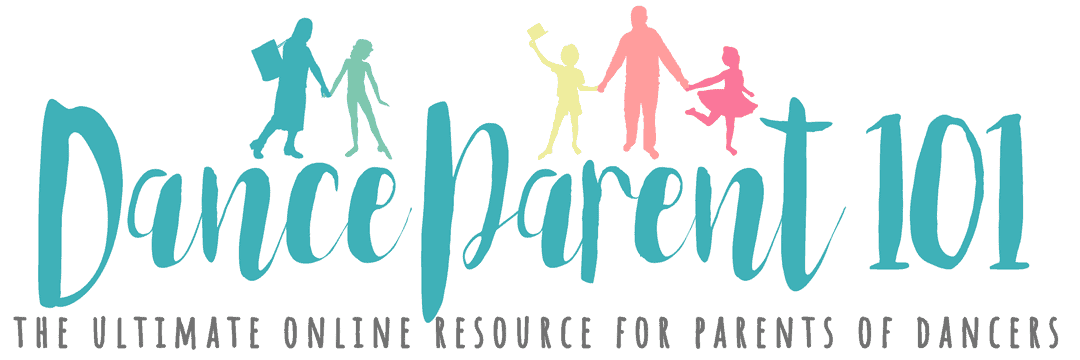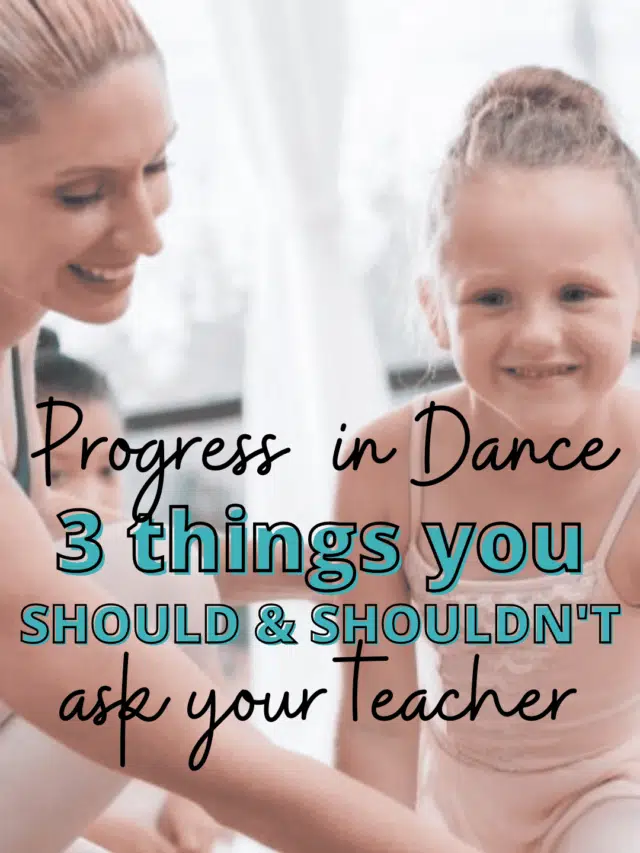By Lesley Mealor / Edited by Samantha Bellerose, B.Ed, Dip.Dance(Performing Arts)
“Practice makes perfect.” We’ve all heard this old adage, but in the dance studio world, my preferred slogan is, “Practice makes progress.” If your dancer comes home from class complaining that they’re not progressing, or if you are sensing that they’re not performing at the level they should be, you’ve got to start asking some tough questions.
The most important questions you can ask regarding your child’s progress in dance include questions about behavior, skill level, and quality of training. However, the way in which you ask these questions matters more than the questions themselves.

A reputable dance studio should welcome questions and be willing to sit down with parents to work out any concerns. But, if you frame your questions in the wrong way, you may end up with less than helpful answers. Here are some common questions dance teachers get asked about student progress, and alternate ways of asking to get the answers you really need!
QUESTION 1 – My Child Comes Home From Dance Saying They’re Bored – Are They Progressing?
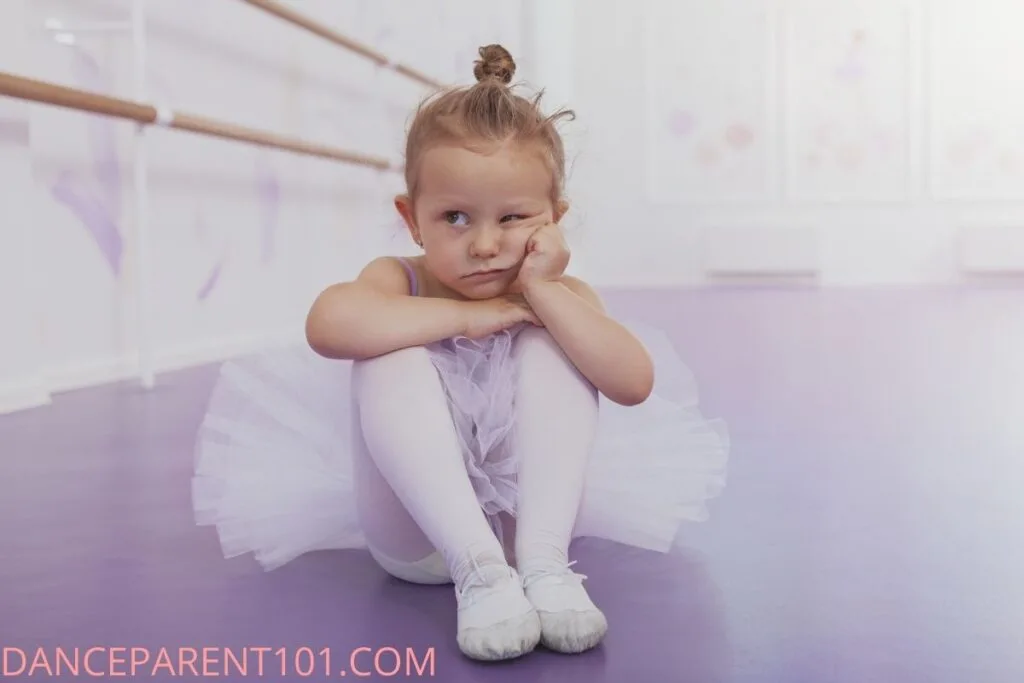
I said I was bored in math class as a child not because I was bored, but because I hated math. Kids say the darndest things, don’t they?
To get the real answers you’re looking for, alternate questions could be:
“Is my child misbehaving, goofing off, or otherwise not paying attention in dance class? Does my child even like dance class? Is my child actually more advanced than their peers, and needs to move up a level?”
By acknowledging that there are multiple possibilities behind why your child is saying they’re bored in class, you open up to the reality that there could be many ways to remedy this situation, and the onus may be on your dancer to change their behavior, not the teacher to change their tactics or lessons.
Your Child is Inattentive in Dance or Ballet Class
If your child is misbehaving or not paying attention, that could be a sign that they simply don’t enjoy dance class, or that particular dance class. Or, there could be other things going on in their world that don’t have to do with dance at all. If the teacher tells you your child is goofing off, you may need to have a heart to heart with your dancer about whether they’d like to withdraw, change styles, or amend their behavior!
Your Child is Not Being Challenged in Their Dance Lessons
Of course, your dancer may truly be bored! If a child is not being challenged due to being in the wrong level, they will surely be bored and not enjoy dance class as much. In that case, the teacher may have some better class options for your dancer, or may offer private lessons for an additional challenge if there is not a better class on the schedule.
💡 Dance Teacher’s Tip for Parents!
Coming from the teacher’s perspective, there are sometimes dancers whose abilities don’t fit perfectly into a class that’s available on the schedule and may be placed in a class that is slightly below their level to allow them to be a leader, or slightly above their level to challenge them.
Approach the situation with an open mind if you come to the teacher with the “boredom” reasoning because many scenarios could be at play that affects their progress. For a more in-depth look at a teacher’s perspective on progress, read my article here.
QUESTION 2 – I Saw Another Child Doing More Advanced Skills Than My Child – Are They Progressing?
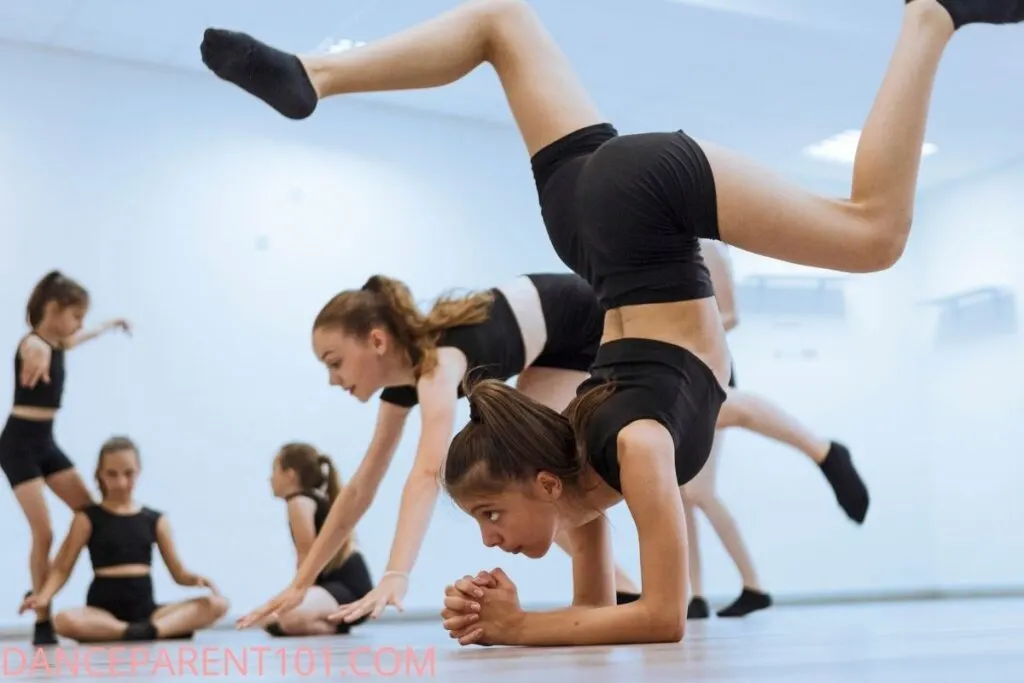
An alternate question here could be:
“What is the correct rate of progress for this age and level dancer, and what differences might there be between that dancer and mine?”
This might be the most important question to ask your child’s teacher when considering their progress. In order to discern whether your child is progressing at the correct rate, you need to know what the correct rate is for their age and level! The old analogy in the dance studio world is, “You don’t learn multiplication before addition, so why would I teach pirouettes before pliés?”
In dance, just like math, there is a methodology of teaching for each genre and level. Developmentally speaking, all age groups learn at different rates and are expected to be able to achieve certain milestones at certain times.
It’s understandable that parents who are not dancers will not know the exact reasoning behind why their child isn’t doing a triple pirouette at age 5, but this is where asking questions comes in very handy.
Do Your Research – Parent Dance Education Is Key!
Deanna, a non-dancing parent of three dancing girls from Massachusetts, says, “It is important to know and understand the skills they are working on and how long it can/should take to master said skills […] I definitely have asked several questions over the years about technique, foot placement, legs, arms, you name it, to try and understand if they are doing skills correctly and mastering properly. The only way you can learn as a non dancer is to ask the experts questions and listen to the answers and look at your dancer.”
Milestones in Dance
The timing of reaching the “impressive” dance milestones like pirouettes, big leaps and jumps, or intricate tap steps can change depending on the amount of hours a dancer studies per week, the quality of the instruction, the natural ability of the dancer, and much more.
If you see a child doing multiple pirouettes flawlessly while your child struggles to balance on one leg, consider that perhaps that child dances 5-7 days a week, trains with a master turn teacher, or could even simply be a phenomenon.
💡 Dance Teacher’s Tip for Parents!
By seeking to understand what is expected of your child, you can then look honestly at them and recognize if they are where they are supposed to be based on the other factors mentioned. For a closer look at what steps to take when assessing your child’s progress in dance, read my article here!
QUESTION 3 – My Child Really Wants to Pursue Dance Professionally – Are they Progressing?
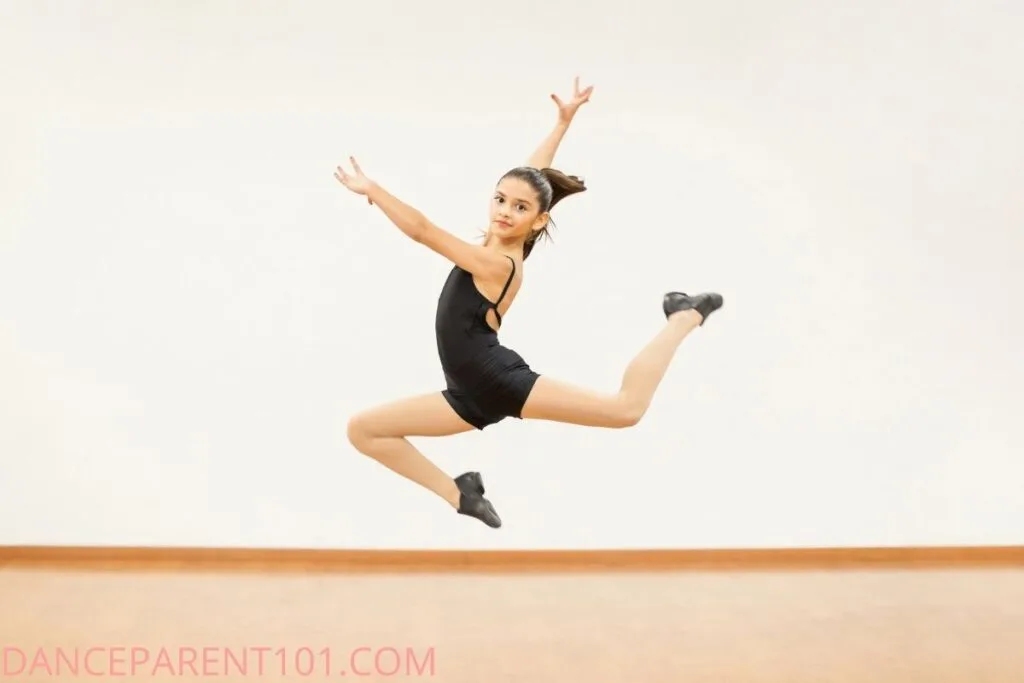
This is a tough question, because it involves getting real about where you spend your money. By asking if your dancer is progressing because they want to dance professionally, you’re really asking if your dancer is good enough to do so. And if they are, any dance teacher will recognize that and will probably tell you so. But that doesn’t really answer your question.
To get down to the real answer you need, however, the question should be,
“Is my child getting the best quality instruction to help them get into a college dance program/book a job in the future/be the best dancer they can be?”
What To Look For in a Reputable Dance Studio
Whether your dancer wants to go pro, become a dance teacher, or just dance for pure enjoyment, quality of training matters. A reputable dance studio offers a variety of chances for learning and growth, through different styles of dance, educated instructors, and performance or competitive opportunities. If you’re not a seasoned dance person yourself, you may not know what to look for when choosing a studio for the first time, or choosing to stay at a studio.
Dance mom Amy from North Carolina experienced a shock after bringing her daughter, age 13, to a new studio for a summer intensive. “My daughter had been at her prior studio for over 4 years. She took a summer intensive at a studio closer to home as her home studio did not offer anything during the summer months. Within the first two weeks of the summer intensive, she learned so much and her […] skill level started to change in a short time.
By week three, we realized she was missing some very important training classes such as technique, lots of ballet, strength and conditioning that she was not getting at her home studio, as their focus was rehearsing choreography. These core classes made such a difference that she decided to audition for the new studio.”
💡 Dance Teacher’s Tip for Parents!
When looking for a quality dance studio, one of the first things to look for is experienced teachers; “experienced” meaning (including but not limited to) teachers with BFAs or BAs in Dance, professional performing experience, years of teaching experience, and training in the genres that they teach. For more on how to spot a bad dance teacher, see our article 15 Signs of A Bad Dance Teacher That You Must Be Aware Of or for teacher qualifications, our article What Qualifications Do I Need to be a Dance Teacher?.
If you’re concerned about your child’s progress or lack of progress in dance, it’s always important to ask the right questions to determine what’s really going on. By asking these questions in a way that will really garner the answers you’re looking for, you will have a much better chance of making the best decision about how to help your child continue on their dance journey!
Further Reading
3 Things Parents Can do to Assess Their Child’s Progress in Dance
4 Actions to take when Your Child is not Progressing in Dance or Ballet Class
